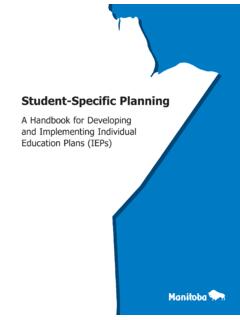Transcription of Grade 5 Human Organ Systems - Weebly
1 Grade 5 Human Organ SystemsUnit PlanHuman Organ Systems Unit Plan1 School Board: Superior Greenstone DistrictSchool: Marjorie Mills Public SchoolGrade: FiveSubject: Science and TechnologyStrand: Understanding Life SystemsTopic: Human Organ SystemsTeachers: Crystal Meyers, Feng Fiona Mao, Megan WilsonTeachers: Crystal Meyers, Feng Fiona Mao, Megan WilsonProfile of the Learner Students in this Grade five class have completed Grade four science and thus have a solid background in the needs and growth patterns of animals and plants These students are concrete operational thinkers who will ask many questions Student in this class will need to relate all lessons and assignments directly to personal experience in order to succeed Providing students with opportunities to work hands-on will increase the likelihood of successImage of the Learner Many students in this class come from low socio-economic groups Students often come to school unprepared and/or hungry There is a high prevalence of learning and/or behaviour disabilities Many students struggle with self-esteem issues and act out as a way of seeking attention Many students in this class have poor reading and
2 Writing skills: often far below Grade level Three students have IEP s (behaviour, reading, writing) A large number of students will not take science beyond what is required at the secondary level Only a few students will pursue post-secondary education Students in this class have very high energy and require frequent opportunities to move around Class as a whole is majority First NationsTopic OverviewAs students continue to make choices in their lives, they need to know that choices they make about their bodies may have lifelong effects. This topic, Human Organ Systems , helps students understand that the body is made up of a number of organs and that these organs are parts of Systems that can be affected by a variety of factors. Using models and simulations, students will learn the location, structure, and function of the major organs of the respiratory, circulatory, and digestive Systems .
3 Students will also develop an understanding of the importance of proper nutrition and exercise to the healthy functioning of Organ faced with choices that may have long-term consequences for their health, students need to have skills and attitudes that will help them make reasoned, informed decisions. They need to consider issues from many perspectives and to look for bias in the information they receive. Is it really the latest style of running shoe that makes a person a better runner or basketball player, or is it the physical health, dedication, and determination of the player? Does the latest fad diet really work? What other side effects might it have that could be less desirable? As students learn to look at things from different points of view and not just accept them at face value, they will become more skilled at making good and thoughtful Organ Systems Unit Plan2 Unit ContextUnit ContextThis unit will be taught three times a week, for five weeks.
4 It will be taught together with the data management and probability unit in mathematics. More specifically, students will be conducting a number of experiments for which they must record their observations and findings. Students will also be learning to read, interpret, and draw conclusions from the data they have collected. This unit is best suited for the winter months, due to the nature and variety of activities it entails. Students in Northwestern Ontario are often prevented from going outdoors for recess or lunch due to the extreme cold. With a variety of labs, model constructions, inquiry projects, and physical activities, this unit is sure to interest students and ease cabin fever. Another reason that winter is an ideal time to teach this unit is that there are fewer extra-curricular activities taking place, so participation and learning are less likely to be interrupted.
5 However, it will be important to note when hockey tournaments are scheduled, as a large number of students participate in hockey and often miss class on Friday in order to attend tournaments. This unit will be taught three times a week, for five weeks. It will be taught together with the data management and probability unit in mathematics. More specifically, students will be conducting a number of experiments for which they must record their observations and findings. Students will also be learning to read, interpret, and draw conclusions from the data they have collected. This unit is best suited for the winter months, due to the nature and variety of activities it entails. Students in Northwestern Ontario are often prevented from going outdoors for recess or lunch due to the extreme cold. With a variety of labs, model constructions, inquiry projects, and physical activities, this unit is sure to interest students and ease cabin fever.
6 Another reason that winter is an ideal time to teach this unit is that there are fewer extra-curricular activities taking place, so participation and learning are less likely to be interrupted. However, it will be important to note when hockey tournaments are scheduled, as a large number of students participate in hockey and often miss class on Friday in order to attend tournaments. Fundamental ConceptsBig IdeasSystems and InteractionsStructure and FunctionOrgan Systems are components of a larger system (the body) and, as such, work together and affect one structures are linked to their in the Human body work together to meet our basic we make affect our Organ Systems and, in turn, our overall QuestionsEssential makes our bodies function the way they do? are the body s major Organ Systems and how do they work together? does the structure of an Organ system relate to its function in the body?
7 Do choices we make affect our Organ Systems and, in turn, our overall health? are the effects of Human activities and technological innovations on Human health? makes our bodies function the way they do? are the body s major Organ Systems and how do they work together? does the structure of an Organ system relate to its function in the body? do choices we make affect our Organ Systems and, in turn, our overall health? are the effects of Human activities and technological innovations on Human health?Enduring UnderstandingsEnduring UnderstandingsStudents will understand Human body is made up of many Systems and organs that work together. choices impact our Organ Systems and, in turn, our overall health. balanced diet and regular exercise are necessary for a long and healthy technology can improve our health and quality of life, however, some technologies can harm our health and quality of will understand Human body is made up of many Systems and organs that work together.
8 Choices impact our Organ Systems and, in turn, our overall health. balanced diet and regular exercise are necessary for a long and healthy technology can improve our health and quality of life, however, some technologies can harm our health and quality of Map: circulatory systemmusculoskeletal systemincludethetheare essential forare essential forheartbloodblood vesselsbonesjointsmusclesmovementcircula tionHuman Organ Systemsrespiratory systemtheconsists of lungstracheadiaphragm breathingare essential forinvolvesandoxygen exhaling inhalingcarbon dioxideconsists of consists of andprotectionandofvital organsthe bodyofinvolvestransportingsupportnervous systemtheare essential forbrainspinal cordnervescommunicationinvolvessent by neuronsbetweenthe brainthe bodyconsists of andsignalsbloodnutrientsoxygenthroughout the bodydigestive systemthestomachsmall intestinelarge intestineare essential fordigestionconsists of convertinginvolvesfoodintoenergyandnutri ents3 Human Organ
9 Systems Unit Plan4 Overall Expectations1. analyze the impact of Human activities and technological innovations on Human health;2. investigate the structure and function of the major organs of various Human body Systems ;3. demonstrate an understanding of the structure and function of Human body Systems and interactions within and between Expectations 1. Relating Science and Technology to Society and the Environment assess the effects of social and environmental factors on Human health, and propose ways in which individuals can reduce the harmful effects of these factors and take advantage of those that are evaluate the effects, both beneficial and harmful, of various technologies on Human body Systems , taking different perspectives into account 2. Developing Investigation and Communication Skills follow established safety procedures for physical use scientific inquiry/experimentation skills to investigate changes in body design and build a model to demonstrate how organs or components of body Systems in the Human body work and interact with other use appropriate science and technology vocabulary, including circulation, respiration, digestion, organs, and nutrients, in oral and written use a variety of forms ( , oral, written, graphic, multimedia) to communicate with different audiences and for a variety of purposes 3.
10 Understanding Basic Concepts identify major Systems in the Human describe the basic structure and function of major organs in the respiratory, circulatory, and digestive identify interrelationships between body identify common diseases and the organs and/or body Systems that they affectObjectives for Teaching the TopicBy the end of this unit, students will be able to Identify the five major Organ Systems (respiratory, circulatory, digestive, musculoskeletal and nervous system) explain their function, location, and connection to other Systems Design and build models which demonstrate a system s function and/or illustrate its primary components Explain how the brain exerts control over all other organs of the body Explain how the heart acts as a pump for the entire body Explain that the role of the lungs is to take in oxygen and get rid of carbon dioxide Explain how muscles, bones and joints work together to facilitate movement Identify some common diseases and the parts of the body they generally affect Identify social and environmental factors that can affect their health both positively and negatively ( smoking is not good for their health, sunshine is a good source of vitamin D but too much sun could cause skin cancer)



